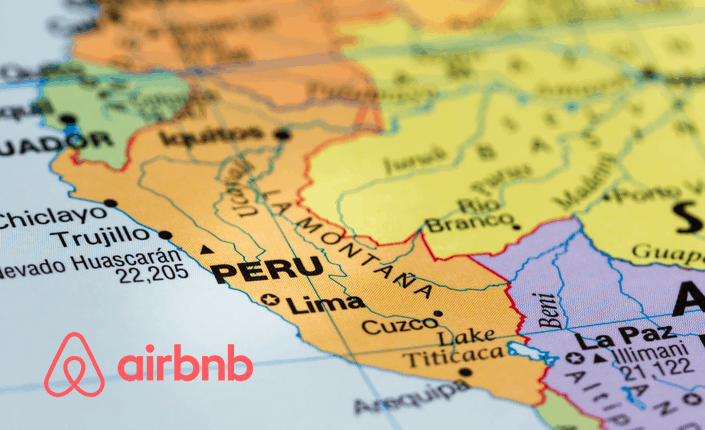
This article was written and published in Spanish and has been translated into English via Google Translate. Click here to read the original article.
The Airbnb platform is not only a competition of the large hotel chains globally, it is also in Peru. According to the Tourism Observatory of the San Martin de Porres University (USMP), the demand for three and four-star hotels contracted by 30% in the last year, as a result of the platforms offering temporary housing, among which Airbnb stands out among others.
Moreover, according to the same platform, Lima is the third city in Latin America with the highest rental requirement for this type of service in Latin America, recalls Día Luis Sicheri, expert in tourism.
José Marsano, Director of the Tourist Observatory, explains that the demand is presented, especially in Lima, Cusco and some other important provinces in terms of tourist flow. Even, it remarks that it becomes 40% in the capital. Rates are also contracting.
"In Cusco, they have dropped between 10% and 20%, compared to the regular rate of three or four stars," he says. The specialist points out that this situation not only impacts hotels with a tourist profile, it also has a similar impact on corporate hotels.
"Many of the investors that arrive in Peru are also from medium or small companies that opt for a corporate hotel on a first visit, but then see the Airbnb as a cheaper alternative," he says. In this segment, the demand contraction reaches 30%.
For Marsano, Airbnb departments or houses can achieve that price level, because they do not pay the taxes that a hotel chain does pay, which is a kind of unfair competition. Today in Peru, he adds, these accommodations only pay 5% to Sunat, but do not pay Income Tax and other taxes that hotels pay.
In other countries, such as Spain, when noticing this situation in Madrid, an inventory was carried out and an Income Tax was applied, similar to the hotels and a tax for overuse of the building for the neighbors, says the professor. In Mexico, he assures that it is similar.
For Sicheri, it is indeed necessary to have a regulation, but one that is appropriate to the new businesses that technology is making its way through and not one that is restrictive.
Despite this, the platform has become an alternative solution that allows property owners to generate income and travelers to have more local experiences and lower prices, even more so when dealing with large groups and for longer periods of time. .
Only in Lima, Airbnb properties increased from 2,139 to 14,665 between April 2015 and September 2018, a period in which they would have generated an average of US $ 55 million in revenues.
This article was written and published in Spanish and has been translated into English via Google Translate. Click here to read the original article.
Join us November 12-15 for the Property Portal Watch Conference Madrid 2019.
